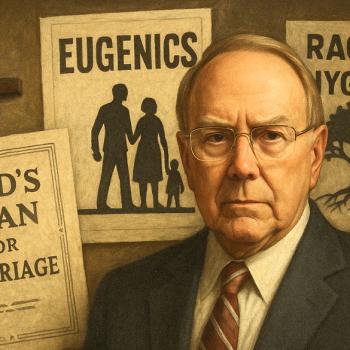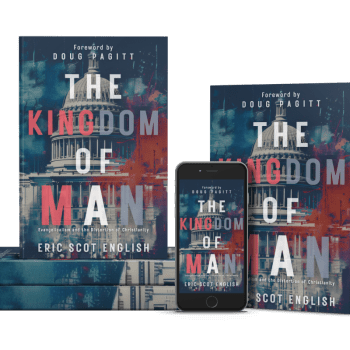Lectionary Reflections
Exodus 32:1-14
October 12, 2014
Today offers to us one of the Bible's very best written stories. It is good in so many different ways that I have long said that it would provide the careful reader enough juice for several months of Sundays. But focus we must on this Sunday in particular, knowing to our great relief that the thing will come round again in three years or so for another shot.
My interest this day is on the actions of Aaron in the text. I find those actions at first inexplicable, given the fact that he was deputized by Moses as his agent while the lawgiver was on the sacred mountain conversing with YHWH: "And to the elders he (Moses) said, 'Wait here for us (he includes Joshua in the us) until we come to you; Aaron and Hur are with you; whoever has any over-against words may draw near to them'" (Ex. 24:14). I translate literally, because the phrase in the NRSV, "have a dispute," does not capture the richness of the Hebrew, which says perhaps even more literally, "whoever is a master of the words" (ba'al debarim). The implication appears to be to have a dispute, but I like the locution "word master" even more.
Well, in chapter 32 the people indeed become master of the words and bring a nasty dispute to Aaron (Hur is nowhere to be found). "When the people saw that Moses was ashamed to come down off the mountain, the people mobbed together against Aaron, and they said to him, 'Get up! Make elohim (God? gods?) for us who will walk before us! As for this Moses, the man who brought us up from the land of Egypt, we do not know what it is to him'" (Ex. 32:1). The verb usually translated "delay" I have read as "ashamed," because that is overwhelmingly its basic meaning. The point appears to be that from the people's point of view Moses has deserted them, and though he has made Aaron the temporary leader in his absence, his abandonment of them is somehow shameful, a dastardly plot to allow them to die at the base of the terrifying mountain, as it heaves and thunders with fire and smoke (Ex. 19).
Furthermore, while Moses has urged any disputes to be brought to Aaron in his absence, these "masters of the words" "mob against Aaron" and speak without a shred of conciliation or politeness. "Get up and make gods," they shout, because this Moses has obviously left us alone to die, and we cannot last another day, another minute, without some sort of God or gods to lead us. As for that guy Moses, well, "we do not know what it is to him," which I take to mean that they have completely forgotten that he told them he was going up the mountain to chat with YHWH and would return to bring them the divine news of the day. As far as they know, Moses and YHWH are engaged in a handball tournament or a solo beach volleyball game.
So, the dispute is definitely on! What Aaron does in response to this astonishing demand is quite amazing and deeply puzzling. "Aaron said to them, 'Take off the rings of gold that is in the ears of your wives, your sons, and your daughters, and bring (them) to me'" (Ex. 32:2). Immediately, the reader is profoundly suspicious of this request. This is so for one quite obvious reason: the people have in effect demanded that Aaron break the first two of the Ten Commandments! They first say that it was Moses who brought them out of the land of Egypt, which, while technically true, is not finally the one behind their freedom. That one is YHWH, as the first Commandment makes crystal clear: "I am YHWH, your God, who brought you up from the land of Egypt, out of the house of slavery" (Ex. 20:2a). They then add that Aaron should "make them elohim who will walk before" them, thus shattering the second Commandment: "you must have no other elohim over against my face" (Ex. 20:2b).
Great stories work on the basis of expectations, and this one is no different. Aaron has been chosen as the agent of Moses, and as such we expect him to reject this ridiculous demand out of hand! "Who do you think you are?" he might have said. "Did you not hear that Moses is even now conversing with the only Elohim that there is in the universe, and that he will come back to you with news from that great God that will make your lives richer and fuller? Your request for other gods is offensive to me, to Moses, and to YHWH!" Or something like that. But such expectations are dashed when we hear Aaron demand gold from the angry people rather than put them in their places as the ingrates and blasphemers that they are.
What does he have in mind for this gold? We do not have long to wait. "All the people took off the rings of gold from their ears and brought (them) to Aaron" (Ex, 32: 3). And Aaron proceeds to execute an incredible plan. "He took (the rings) from their hand and fashioned them with an engraving tool, and made a molten calf" (Ex. 32:4a). In every sense Aaron's work is artistic and lengthy. The verb "fashion" is the same one found at Genesis 2 when YHWH God "fashions" you and me on the potter's wheel, making each one of us into 'adam, a human being, breathed into existence with YHWH's very breath. And though I have never made any gold jewelry, I know that when softened by fire, the metal is malleable and may be made into shapes only limited by the imagination and skill of the artisan performing the work.





